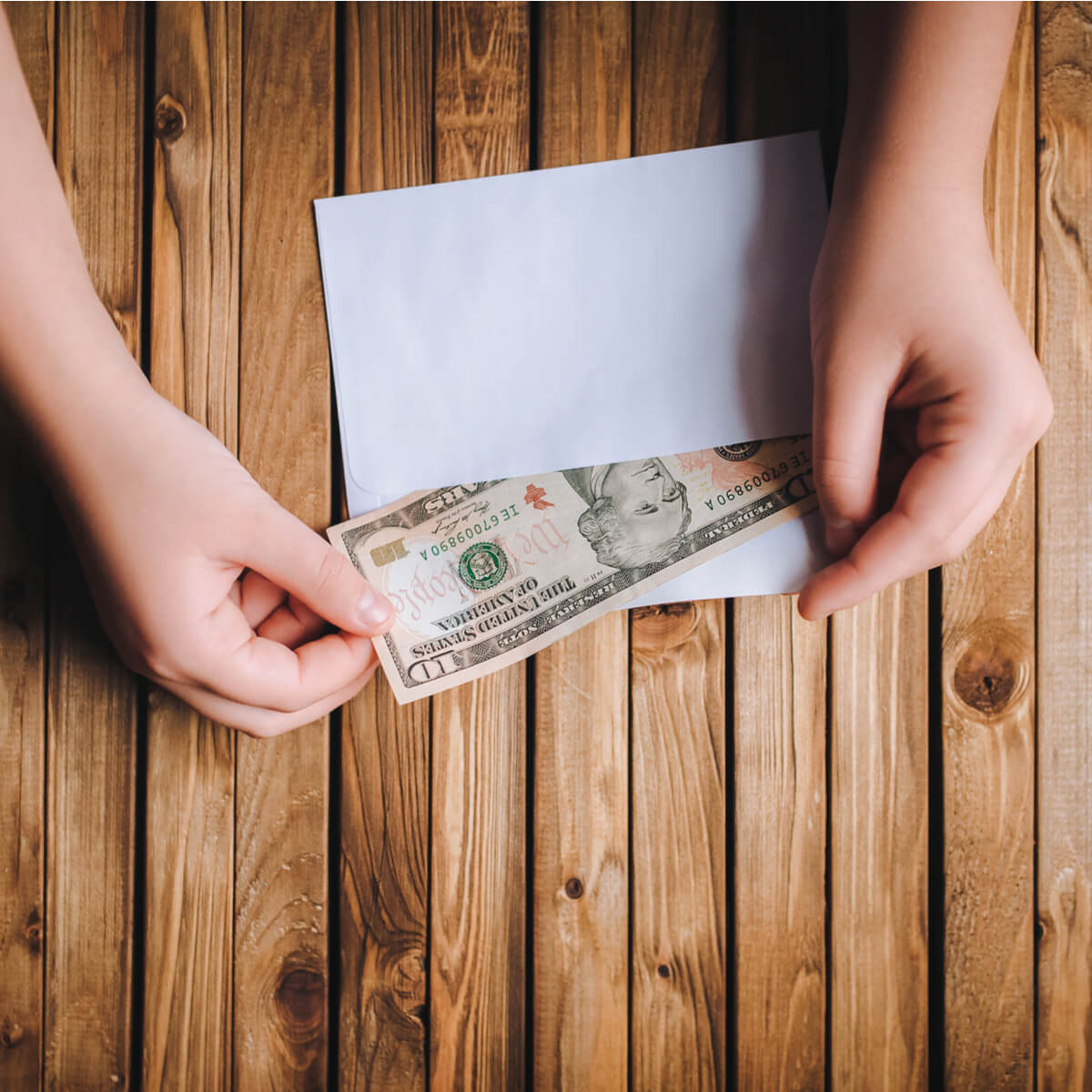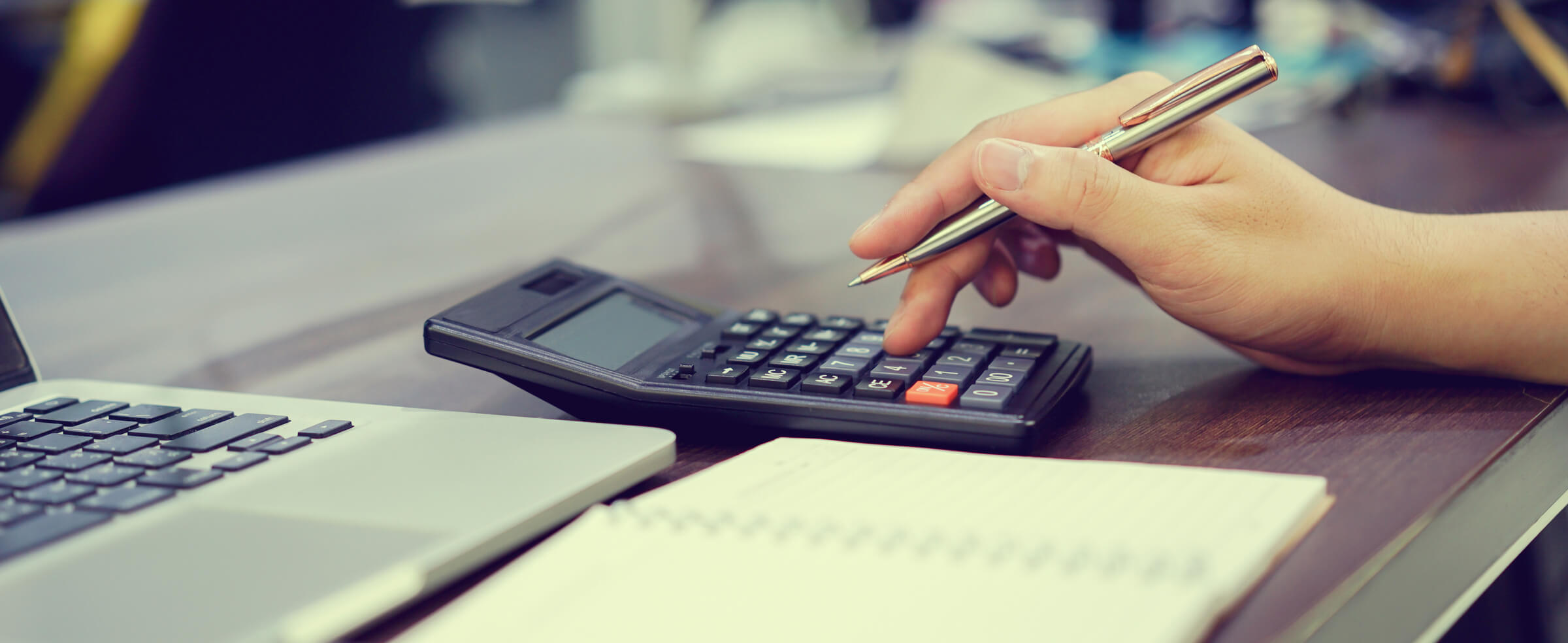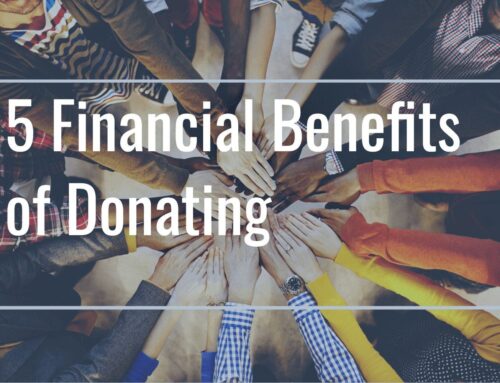It’s the beginning of a new year, and what better way to improve your life than by getting a better hold on your finances? However, if you have challenges with your money habits, then it’s time to start breaking your bad spending habits. Let’s look at five spending habits that are ruining your cash flow and how you can replace them with good spending habits.
1. Paying Yourself Last
When you get your paycheck, paying off rent, bills, utilities, mortgage payments, and loan payments typically come first. As a result, many people don’t prioritize putting away a little money for a rainy day.
Research and design company Highland conducted a survey about American’s spending habits during COVID-19 and found that 63 percent of Americans were living paycheck to paycheck. If you’re living paycheck to paycheck, it can seem hard to save enough money to build up your personal finances. But, you don’t have to put away large amounts every month to create a good habit. Saving bit by bit adds up!
2. Not Tracking Your Spending
Tracking what you spent your money on may not be fun, but it is important. If you use a credit card for most of your purchases, it can be even more tempting to not track your expenses until you have to pay your bills. However, the more you avoid tracking how much you spend the larger the shock will be when the bill comes due.
If you don’t pay attention to your spending habits, you may even find yourself in debt. Granted, going into debt for your mortgage or for car payments isn’t a bad thing, but credit card debt can be much harder to recover from.
3. Spending More Than You Make
This brings us to our next point, if you spend more money than you make, that’s a habit you need to break as soon as you can. Having a negative cash flow every month is a sure sign of unhealthy spending habits.
What gets a lot of people is making impulse purchases and subscription fees. Those small money leaks are what break a budget. These days with so many online start-up businesses, their marketing involves signing up for subscriptions to give you access to benefits.
Streaming services also stack up to the same amount as cable tv subscriptions!
4. Impulse Buying
Once again, if you’re not aware of how many impulse buys you make, it’s time to break that bad habit. Depending on what you like, these buys can range from large to small expenses. Maybe you have a busy schedule that makes eating regular meals difficult, so you often buy fast food.
Or maybe you have a collection you add to when you see a good deal. Or perhaps, you like to shop for something when you have a bad day. Or maybe you follow social media accounts that provide regular deals from affiliate links that you can’t resist.
Whatever the size of the impulse buys, be careful, because if you don’t pay attention to a spending habit like this, it can quickly get out of hand.
5. Not Keeping an Emergency Fund
Millions of Americans lost their jobs in 2020 due to the pandemic, which raised the unemployment rate to 14.80 percent in April 2020 according to Trading Economics. 2020 was also a year with a record number of natural disasters, from the fires in California, the tornados in Middle Tennessee, and the extremely active hurricane season. These disasters left more Americans out of work, homeless, and seeking refuge. Homes were lost and lives were displaced.
Remember that disasters can strike at any time, and when they do, your preparation will be put to the test.
How can I stop my bad spending habits in order to save money?

Now that we’ve talked about the five bad spending habits you need to break, where do you start?
Start Small
The most important part of saving money is starting where you are. When you get your next paycheck and before you pay for other expenses, set aside a little bit of money for yourself. It could be just five dollars! But the point is to start, and then do it again with your next paycheck.
Managing your money is less about making huge changes at a time, and more about making small decisions that will compound into big wins later on.
Start Today
Decide today on the amount of money you’ll save at the beginning of the month. That way you’ll know, or have a good estimate of your financial situation at the beginning of the month.
Get an Action Partner
Accountability is often uncomfortable, but it’s also one of the best tools or strategies for building a good financial habit. Find a friend you can trust, set a time to regularly check in with them, and keep checking in with them even when it’s hard. Taking accountability for your spending will yield many long-term benefits.
Set Goals
This article can’t tell you exactly how to change your habits because everyone’s financial situation is different. But if you seriously want to build good money habits, decide what you want, create a goal, and then go for it.
If you have a big goal, break it down into smaller steps. For example, your goal might be to have more money in your bank account. Decide on the amount you want to have in the future, and then work backward to determine how much you can save monthly.
Track Your Progress
A goal isn’t worth setting unless you plan to track your progress. For example, if your goal is to save money by reducing how much you eat out, you need to know where you’re starting from and what you’re doing differently. Keeping with the example of eating out, if you know you eat out four times a week, compare the cost of those meals to a meal you make yourself.

How to save money and also spend smart?
Save money by:
- Reducing unnecessary spending
- Paying yourself first when you get paid
- Plan how you spend your money
Spend smart by:
- Tracking your spending
- Think of your expenses as the cost of your time
- Establish spending priorities and stick to them
- Wait 24 hours before making a purchase online
To speak a little more about smart spending, many people find it helpful to connect a time amount to their purchase. If you would find this strategy helpful, try the Chrome extension Time Well Spent, to try this strategy now.
What’s an easy money-saving habit to get into?
Probably the easiest habit to get into is paying yourself a little money when you get paid. Once again, it doesn’t have to be a large amount. If you find yourself using a card to make most of your purchases, you might want to withdraw some cash and save it in an envelope. Or, if you have a decent amount to deposit, it might be time to open a savings account to start earning some interest on your savings.
How to manage your spending habits?
The number one way to manage your spending habits is to know why you want to manage them in the first place. For example, if you want to pay off debt, you might want to make a vision board as a reminder of your goal. Whatever it is, write down your why and put it somewhere you can see it every day.
Also, don’t get intimidated if you feel like you have a lot to work on. Making small steps will add up to big steps in the future. You don’t have to run a mile before you can walk.
Contact F&M Bank for Financial Solutions and So Much More
As Tennessee state’s premier community bank, F&M Bank is committed to serving the people in our community to help them find financial success.
If you’re interested in investing, opening a savings or checking account, need a credit card, need a mortgage, and so on, give us a call to set up an appointment with one of our Tennessee banking experts.




